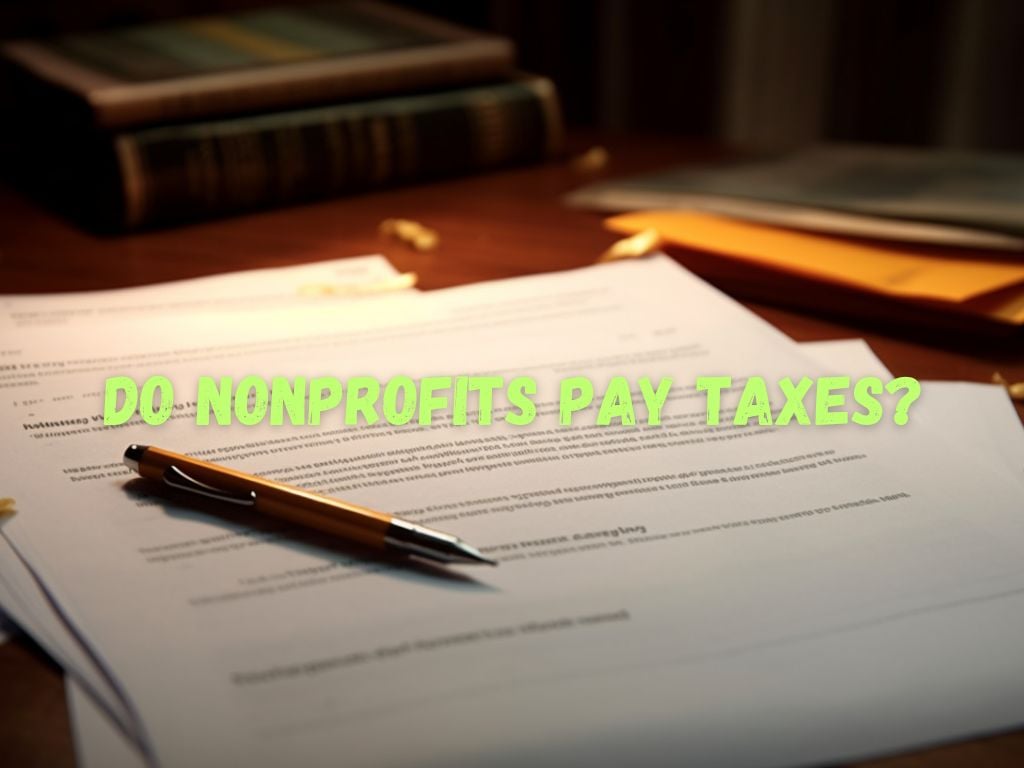Nonprofit organizations play a vital role in society by serving various causes and communities. Many people often wonder if nonprofits pay taxes, considering their charitable nature.
These organizations are legal entities that focus on pursuing a specific mission or objective, such as providing assistance to the underprivileged, advancing education, or promoting arts and culture.
They are exempt from certain taxes due to their charitable nature and the benefits they bring to society. So, do nonprofits pay taxes?
However, in this article, we will delve into the topic of nonprofit tax obligations and explore the different aspects and exemptions related to taxes.
Do Nonprofits Pay Taxes?
Nonprofits are generally exempt from paying federal income taxes under section 501(c)(3) of the Internal Revenue Code. This means that nonprofit organizations do not have to pay taxes on the income they receive from their eligible activities, such as donations or grants that are used for their exempt purposes.
While nonprofits typically do not pay federal income taxes, they may still have tax obligations related to unrelated business income, sales tax, and property tax. It is crucial for nonprofits to understand and comply with the tax laws and regulations in their jurisdiction to ensure proper tax compliance.

Types of Taxes Nonprofits May Have to Pay
Although nonprofits enjoy certain exemptions, they are not completely exempt from all taxes. Let’s take a closer look at the various types of taxes that nonprofits may have to pay:
Federal Income Tax
Nonprofits are generally exempt from federal income tax under section 501(c)(3) of the Internal Revenue Code.
However, there are some exceptions to this exemption. For instance, if a nonprofit organization engages in activities that are not directly related to its charitable purpose, it may be subject to unrelated business income tax (UBIT).
This tax applies to income generated through activities that are not substantially related to the nonprofit’s mission.
State Income Tax
The exemption from state income tax varies from state to state. While some states may fully exempt nonprofits from paying state income tax, others may partially tax them or require specific criteria to be met.
It’s important for nonprofits to understand the state requirements in which they operate to ensure compliance with state-level tax obligations.
Sales Tax
Nonprofit organizations are often eligible for exemptions from sales tax on purchases made for their tax-exempt purposes.
However, sales tax may still be applicable to certain transactions, such as the sale of goods or services by the nonprofit organization.
It is crucial for nonprofits to familiarize themselves with the sales tax laws in their jurisdiction and determine any potential tax liabilities.
Property Tax
Property tax is another aspect that nonprofits need to consider. While nonprofits are generally exempt from paying property tax on properties used for their exempt purposes, this exemption can vary depending on the state and the specific situation.
Some states may require nonprofits to apply for property tax exemption, while others may have specific restrictions or limitations on the scope of exemption.

Tax Exemptions for Nonprofits
Nonprofits enjoy tax exemptions based on their mission and the benefits they provide to society.
However, to maintain these exemptions, nonprofits must meet certain criteria and abide by specific rules. Let’s explore the different aspects of tax exemptions for nonprofits:
Overview of Tax Exemption Requirements
To be eligible for tax exemption, nonprofits need to meet the requirements set forth by the Internal Revenue Service (IRS) under section 501(c)(3) of the Internal Revenue Code.
These requirements include operating exclusively for religious, charitable, scientific, or educational purposes, and not distributing profits to individuals or private shareholders.
Additionally, nonprofits must ensure that their activities do not violate certain public policies, such as engaging in substantial political lobbying or endorsing specific political candidates.
By adhering to these requirements, nonprofits can maintain their tax-exempt status.
Examples of Tax Exemption Status
Nonprofits that meet the requirements for tax-exempt status are granted 501(c)(3) or 501(c) status by the IRS. This status allows them to be recognized as tax-exempt organizations and receive certain benefits, such as the ability to receive tax-deductible donations.
It is essential for nonprofits to apply for and obtain this status to enjoy the benefits associated with tax exemption.
Criteria to Maintain Tax-Exempt Status
Once nonprofits have obtained tax-exempt status, it is crucial for them to fulfill certain responsibilities to maintain that status.
These responsibilities include filing annual returns, commonly known as Form 990, with the IRS to provide transparency and accountability regarding their finances and activities.
Nonprofits must also ensure that their activities align with their stated exempt purpose. Engaging in activities outside the scope of their mission or generating excessive unrelated business income can put their tax-exempt status at risk.
Common Questions About Nonprofit Tax Obligations
Let’s address some frequently asked questions regarding nonprofit tax obligations:
Do Nonprofits Pay Taxes on Donations?
No, nonprofits do not pay taxes on donations. In fact, donations made to eligible nonprofits are tax-deductible for the donors, meaning they can reduce their taxable income by the amount donated.

Do Nonprofits Pay Taxes on Investment Income?
Nonprofits may be subject to taxation on their investment income if it falls under the category of unrelated business income. However, income generated from investments that directly support their exempt purpose is generally tax-exempt.
Do Nonprofits Pay Property Taxes?
Nonprofits are exempt from paying property taxes on properties used for their exempt purposes. However, this exemption may vary depending on state laws and the specific use of the property. Nonprofits should consult with local tax authorities to determine their property tax obligations.
These are just a few examples of commonly asked questions related to nonprofit tax obligations. It’s important for nonprofits to consult with tax professionals or legal experts to fully understand their specific tax obligations based on their unique circumstances.
Conclusion
Nonprofit organizations play a vital role in society and are generally exempt from certain taxes due to their charitable nature.
While nonprofits are exempt from federal income tax and may enjoy exemptions from state income tax, sales tax, and property tax, it is essential for them to adhere to specific requirements and guidelines to maintain their tax-exempt status.
Nonprofits should consult with professionals to ensure compliance with tax obligations and maximize the benefits they can provide to their communities.
By understanding the tax obligations and exemptions applicable to nonprofits, individuals and organizations can make informed decisions when it comes to setting up or supporting these valuable entities.
Remember, always consult a tax or legal professional for accurate information and guidance specifically tailored to your needs and circumstances.


 Tags:
Tags:










